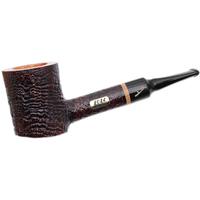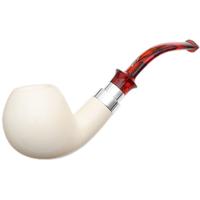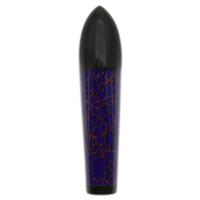Is it because Cotinine, found in tobacco like OJK, is currently being studied as a treatment for depression, PTSD, schizophrenia, Alzheimer’s disease and Parkinson’s disease? Or is it just a nice day after a whopper bowl of OJK?
I Feel Good Today! Is it Because of Old Joe Krantz?
- Thread starter alexnc
- Start date
You are using an out of date browser. It may not display this or other websites correctly.
You should upgrade or use an alternative browser.
You should upgrade or use an alternative browser.
It does seem like there might be a secret ingredient in OJK. I don't know what it is...it might be floor sweepings...but I love it.Or is it just a nice day after a whopper bowl of OJK?
A truly good and stout burley blend always makes me feel better, so there must be something to it.
Cotinine is in tobacco, like nicotine. But on another note, with all the OJK love, I hated it the first time I tried it! I thought it was harsh and ‘who the heck could stand to smoke this stuff.’ A few years later, now I love it. I would jump to try a stronger version!
Only reason I ask about continine /perique is that I know it helps metabolise the nicotine of the tobacco varietals it is blended with.
Cotinine is a metabolite of nicotine itself and is found in all nicotine-containing tobacco products as well as being created by the body when it metabolizes nicotine.
As someone that has schizophrenia, I can tell you using tobacco products is definitely no treatment for it. As far as I know, the main focus of nicotine and nicotine-derived compounds with regards to schizophrenia, is in treating the cognitive aspects of the disorder that anti-depressants and anti-psychotics don't have much of an effect on.
It helps with the cognitive fog, but not by much and isn't super effective. They've been studying nicotine forever with regard to possible medicinal uses. Efficacy is low with naturally ingested nicotine (by that I mean smoking, chewing, nasal snuff, etc). More than likely, they would come up with a synthetic analog that's lower in addiction and higher in the effects they want, if they find it to be worthy to do.
Alkaloids (of which nicotine is one, as well as the MAOI nornicotine, also naturally found in tobacco) in medicine aren't new. I also don't know that OJK has especially or significantly more cotinine than other blends, though I do know it's higher in nicotine in general, on the stronger end of pipe tobaccos (and therefore would have more cotinine after being metabolized).
As far as cotinine, they're interested in that because it is less addictive than nicotine but with similar activation areas of the brain.
It's probably not the cotinine, it's probably just that you enjoy OJK.
As someone that has schizophrenia, I can tell you using tobacco products is definitely no treatment for it. As far as I know, the main focus of nicotine and nicotine-derived compounds with regards to schizophrenia, is in treating the cognitive aspects of the disorder that anti-depressants and anti-psychotics don't have much of an effect on.
It helps with the cognitive fog, but not by much and isn't super effective. They've been studying nicotine forever with regard to possible medicinal uses. Efficacy is low with naturally ingested nicotine (by that I mean smoking, chewing, nasal snuff, etc). More than likely, they would come up with a synthetic analog that's lower in addiction and higher in the effects they want, if they find it to be worthy to do.
Alkaloids (of which nicotine is one, as well as the MAOI nornicotine, also naturally found in tobacco) in medicine aren't new. I also don't know that OJK has especially or significantly more cotinine than other blends, though I do know it's higher in nicotine in general, on the stronger end of pipe tobaccos (and therefore would have more cotinine after being metabolized).
As far as cotinine, they're interested in that because it is less addictive than nicotine but with similar activation areas of the brain.
It's probably not the cotinine, it's probably just that you enjoy OJK.
As a side note, the average cigarette contains 12 mg of nicotine, of which the average person absorbs 1 mg. The average 1-3 gram amount of pipe tobacco in a bowl contains 30-50 mg of nicotine, of which you absorb maybe 0.4 mg. That's from a quick, cursory look on Google. I won't be offended if anyone fact checks that, and don't take it as a hard truth, that's just the first source I came across when looking it up.
Though anyone that smokes both (cigarettes and pipe) can attest, most cigarettes inhaled in the lungs will give you more nicotine than a bowl of pipe tobacco not inhaled to the lungs. At least that is my experience anyway.
Though anyone that smokes both (cigarettes and pipe) can attest, most cigarettes inhaled in the lungs will give you more nicotine than a bowl of pipe tobacco not inhaled to the lungs. At least that is my experience anyway.
Interesting way of dancing around saying, "I love nicotine".
“Cotinine” has been known to cause pipe explosions. Perhaps @ChasingEmbers can shed some light upon cotinine disfigurements over the years. Clenchers have suffered a disproportionate amount of the most horrific of injuries in comparison with those whom like the feel of pipe-in-hand. Of course, frequency of puffing and cadence notwithstanding. A risk all pipe smokers must accept.
Thanks for that awesome break down.Cotinine is a metabolite of nicotine itself and is found in all nicotine-containing tobacco products as well as being created by the body when it metabolizes nicotine.
As someone that has schizophrenia, I can tell you using tobacco products is definitely no treatment for it. As far as I know, the main focus of nicotine and nicotine-derived compounds with regards to schizophrenia, is in treating the cognitive aspects of the disorder that anti-depressants and anti-psychotics don't have much of an effect on.
It helps with the cognitive fog, but not by much and isn't super effective. They've been studying nicotine forever with regard to possible medicinal uses. Efficacy is low with naturally ingested nicotine (by that I mean smoking, chewing, nasal snuff, etc). More than likely, they would come up with a synthetic analog that's lower in addiction and higher in the effects they want, if they find it to be worthy to do.
Alkaloids (of which nicotine is one, as well as the MAOI nornicotine, also naturally found in tobacco) in medicine aren't new. I also don't know that OJK has especially or significantly more cotinine than other blends, though I do know it's higher in nicotine in general, on the stronger end of pipe tobaccos (and therefore would have more cotinine after being metabolized).
As far as cotinine, they're interested in that because it is less addictive than nicotine but with similar activation areas of the brain.
It's probably not the cotinine, it's probably just that you enjoy OJK.
I Have struggled with schizophrenia and PTSD myself.
When I quit nicotine for several years my creativity and Lust for Life in general took a nose dive ,since I got back in the habit things have been much better I feel alive again , not just surviving but thriving.
I started doing Dialectical Behavior Therapy ( DBT) and funny thing it made me want to smoke again and actually feel okay with that , the DBT and Nicotine have improved my quality of life immensely.
If for some reason ( God Forbid) my life is cut shorter by nicotine I wouldn’t mind trading quality over quantity at this point.
I have a pipe I’m dedicating to O’l Joe , because he tends to have a strong ghost and I smoke him so much , gotta keep him pure and I want my other burleys to taste right…
I find this thread very interesting. As a psychologist, I routinely work with people struggling with mental health and addiction. Nicotine and caffeine seem to be the most difficult to kick. But I know multiple people who have ended their cigarette/nicotine addiction through pipe smoking. With regard to schizophrenia, anecdotal data suggests a benefit from nicotine in it's ability to reduce side effects of anti psychotics. There may also be a synergistic interaction between anti psychotics and nicotine that improves efficacy. Too bad most nicotine is consumed via cigarettes.
Very interesting thanks for postingI find this thread very interesting. As a psychologist, I routinely work with people struggling with mental health and addiction. Nicotine and caffeine seem to be the most difficult to kick. But I know multiple people who have ended their cigarette/nicotine addiction through pipe smoking. With regard to schizophrenia, anecdotal data suggests a benefit from nicotine in it's ability to reduce side effects of anti psychotics. There may also be a synergistic interaction between anti psychotics and nicotine that improves efficacy. Too bad most nicotine is consumed via cigarettes.












